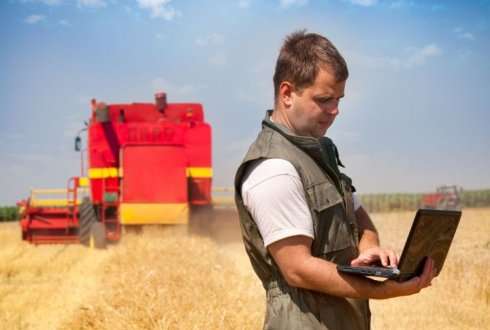Data sharing for food security

Data cannot be eaten, but giving everyone free access to information could lead to innovations that enhance the production and distribution of food, resulting in global food security. 'Open Access Data for Agriculture' was the theme of the G8 conference on April 29 and 30 in Washington. Sander Janssen, a researcher at Alterra Wageningen UR, was one of the speakers at the conference.
From raw data to relevant knowledge
Farmers often don't know how to use the raw data that governments have been collecting with public money. But there are many bright minds around the globe that can interpret the data and make them relevant for the general public, for example by developing phone applications that make use of freely available satellite images, weather forecasts, commodity prices, etcetera.
National satellite database
In his presentation, Janssen showed that open access to data can lead to accelerated innovations. For example, the Dutch government bought satellite images for four million euros and made them freely available in a national satellite database. Companies and research institutes make use of these data to monitor developments in nature or to make tools that calculate the water storing capacity of areas. Satellite images could also be used for precision farming, closely observing crops and applying targeted action to increase the yield.
Developing countries
Providing free access to all data collected with public funds is common practise in most European countries, the United States, Canada, Australia and New Zealand. However, in developing countries this happens very sparsely. "Ghana and Kenya are the only two African countries with open data portals. I've shared some of those data at the G8 conference", Janssen tells enthusiastic.
Stimulating innovation
Janssen is convinced that open access to information stimulates innovation. "Speakers at the conference indicated that with open access much has changed in the healthcare and energy sectors in the US," says Janssen. For example: "There is an app that shows you in which hospital you can get the treatment you require." In other words, open access increases the transparency of public authorities and it empowers citizens.
Serious gaming
Thanks to open access, developers of computer games can use the same raw data that scientists use to develop models that predict the effects of changing conditions, policies and management measures. This has led to the emergence of 'serious games', which simulate reality. One such game is Farm Defenders. More than a game, it is educational material that mimics the situation in which African farmers operate, using real data.
Educational materials Wageningen University
Wageningen UR also develops serious games, like African Highland Farmer, Serious Sims, Economy simulation and Global Food Security. "The goal of simulations is not always to prepare people for real life situations", clarifies Matthijs Danes, researcher at Alterra. "Serious games can also be used to collect data. For instance, one can gain information on how people act or react in certain situations." An example of a simulation that is used to monitor the behaviour of people is the virtual supermarket. This software, co-developed by Wageningen UR, allows researchers to measure how moderations in shop settings and product assortment affect the shopping behaviour of 'consumers'.
Provided by Wageningen University
















